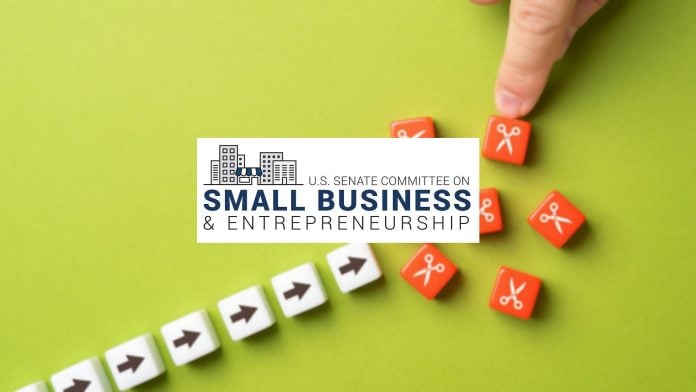In a turbulent economic climate, small businesses are feeling the brunt of President Trump’s latest tariff policies, which have sparked widespread concern among entrepreneurs across the United States. Following a delay of country-specific “reciprocal” tariffs originally set to take effect, small businesses voiced their frustrations in a recent Senate hearing led by Ranking Member Edward J. Markey (D-Mass.) and Senate Finance Committee Ranking Member Ron Wyden (D-Ore.). The consensus was clear: unstable tariff regulations create uncontrollable challenges for small business owners.
“Trump’s roller coaster tariff policies do not provide small businesses with certainty – they are causing chaos and confusion,” Markey stated. He highlighted how many entrepreneurs are left with no option but to pass costs onto customers, pause hiring, or even close their doors. The urgency of the matter is underscored by Markey’s introduction of the Small Business Liberation Act, aimed at relieving small businesses from the burdens of these unpredictable tariffs.
Amid high inflation and rising operational costs, small business owners are anxious about the impact of tariff increases. Wyden emphasized this concern, stating, “At a time when prices are already high, the President should be focusing on lowering costs for Americans, not raising them.” Many small businesses operate on thin margins, making unexpected costs particularly challenging to absorb.
Real-life accounts from small business owners illustrate the tangible effects of tariff volatility. Legrand Lindor, owner of LMI Textiles in Milton, Massachusetts, recounted a staggering $5,000 in back-dated tariffs on an unexpected shipment. “We’re trying to figure out how to absorb these unexpected costs without passing them on to the communities we serve,” he explained, highlighting the direct struggle to maintain competitive pricing while facing erratic expenses.
Shaundell Newsome, Co-Chair of Small Business for America’s Future and founder of a marketing company in Las Vegas, echoed Lindor’s sentiments. “Tariff whiplash makes it nearly impossible for Main Street entrepreneurs to plan, hire, or grow.” With changes happening overnight, small businesses suffer from an inability to set budgets or anticipate market conditions, creating a difficult environment for sustained growth.
Import-dependent businesses are particularly hard-hit. Gabe Hagen, founder of Brick Road Community Corporation in Tempe, Arizona, revealed that import needs can’t be avoided. “I’ve had to make some really tough financial decisions,” Hagen said. “The unpredictability has forced us to cut our expansion plans because it’s nearly impossible to plan for growth when you don’t know what costs are coming next.”
Challenges extend beyond financial concerns. Carrin Harris, CEO of Blitz Proto in Farmington Hills, Michigan, reported disrupted supplier relationships due to tariff delays. “We had a critical project delayed by two months because our supplier kept pushing back timelines,” she stated, underscoring the impact of these policies on operational efficiency and project timelines.
Even the food and beverage sector grapples with these complexities. Gladys Harrison, owner of Big Mama’s Kitchen and Catering in Omaha, Nebraska, explained how rising spice costs from international suppliers have led to scaled-back expansion plans that would have otherwise created jobs and driven local investment. “The tariff uncertainty…will continue to make it more and more difficult for all of us in our pursuit of the American dream,” she lamented.
Ranking Member Markey has consistently advocated for small businesses suffering under these tariffs, pushing for congressional action to protect them. The Small Business Liberation Act, while currently stalled, represents a significant effort to exempt small enterprises from the sweeping tariffs that have emerged from ongoing trade policies.
As small businesses adapt to ongoing uncertainty, industry leaders hope for clearer guidelines that would enable planning and growth without the fear of sudden cost increases. This situation presents a critical inflection point for small business owners, as they navigate the complexities of tariffs while striving to meet community needs and sustain their operations.
For more details, the original press release can be viewed here.
Image Via Envato: iLixe48



